Top Ethical Wildlife Encounters
10th August 2021
6 min. read
1652

The natural world is full of unfathomable wonders and the animal kingdom never ceases to amaze us. It is every kid’s dream to swim with dolphins or be like Jane Goodall and live amongst the apes. Unfortunately, animal tourism has become increasingly popular and unsustainable and the industry is riddled with irresponsible practices. All hope is not lost yet! There are, however, some eco-warriors that have made the natural world accessible to us all and created ways in which you can see some of the world’s most majestic animals in their natural environment without leaving your mark. These are some unmissable and ethical wildlife tourism opportunities.

Orangutans in the Jungle
Orangutans are facing extinction due to deforestation and there is sadly less than a handful of places left where you can see them in their home. These beloved apes are from South East Asia and live on the islands of Sumatra and Borneo. In northern Sumatra, the village of Bukit Lawang is home so these curious creatures and local guides will take you trekking through Gunung Leuser National Park.
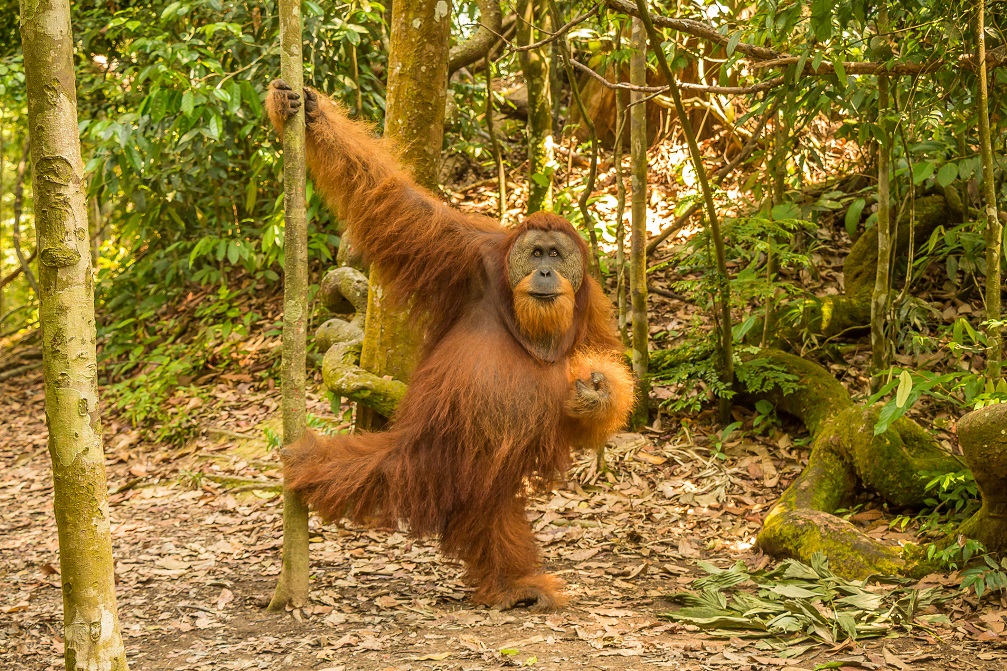
Gorillas in the Mist
Another of the great apes that should be observed in their jungle home is the mountain gorillas of Uganda. Hours of trekking through the jungle with skilled guides will lead you to a family of Guerillas living in the mountains of Bwindi Impenetrable National Park. Visitors keep a safe distance of 7m from the animals (unless they get curious and approach you) and their habitat is respected at all times. Getting up close with these mighty beasts is unlike anything you will ever experience!

Whale Sharks in the Deep Blue
If you are an ocean lover, seeing a whale shark up close should be at the top of your bucket list. These shy creatures can be found in tropical waters across the globe, but nowhere are they looked after as well as in Mozambique. With incredible depths in the bay, Tofu beach is the perfect place to spot the gentle giants. The operators in the area place restrictions on the number of visitors and marine biologists join the tours to ensure the wellbeing of the animals. If you are lucky, you will also get to see Manta Rays that are attracted to these rich waters.
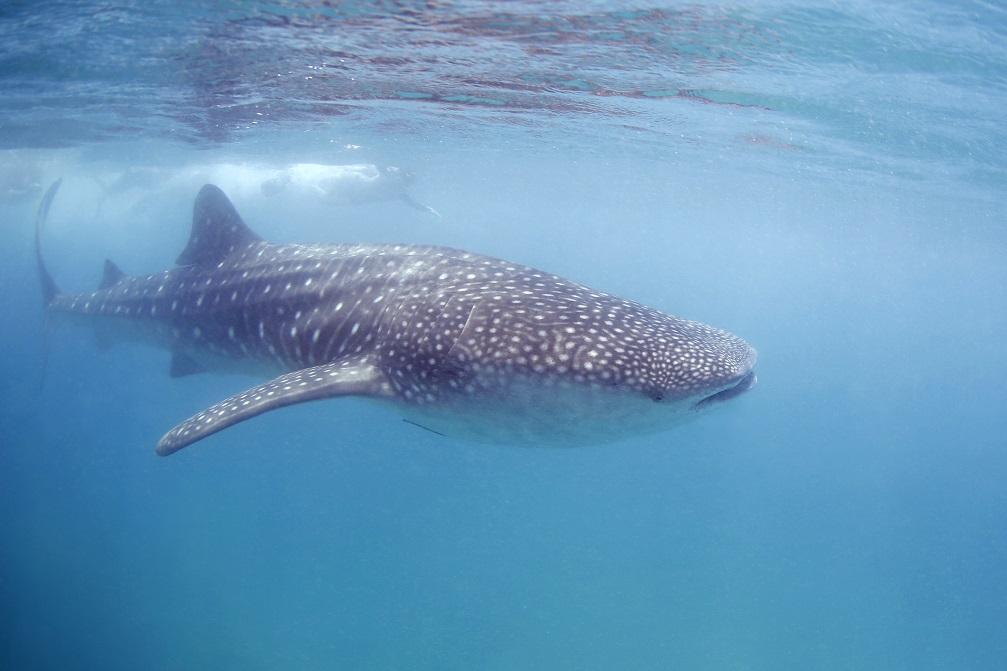
Sea Turtles in the Island Shallows
The Galapagos Islands in South America is one of the most biologically diverse places on the planet and has largely been left untouched by humans. There are however limited spots per year to visit these islands with qualified operators. As most animals here have never seen humans before, it is the best (and probably only place) to see animals be truly wild, with no human interference. Sea Turtles frequent these shores with their favorable currents and snorkeling amongst these docile animals is a once-in-a-lifetime opportunity.
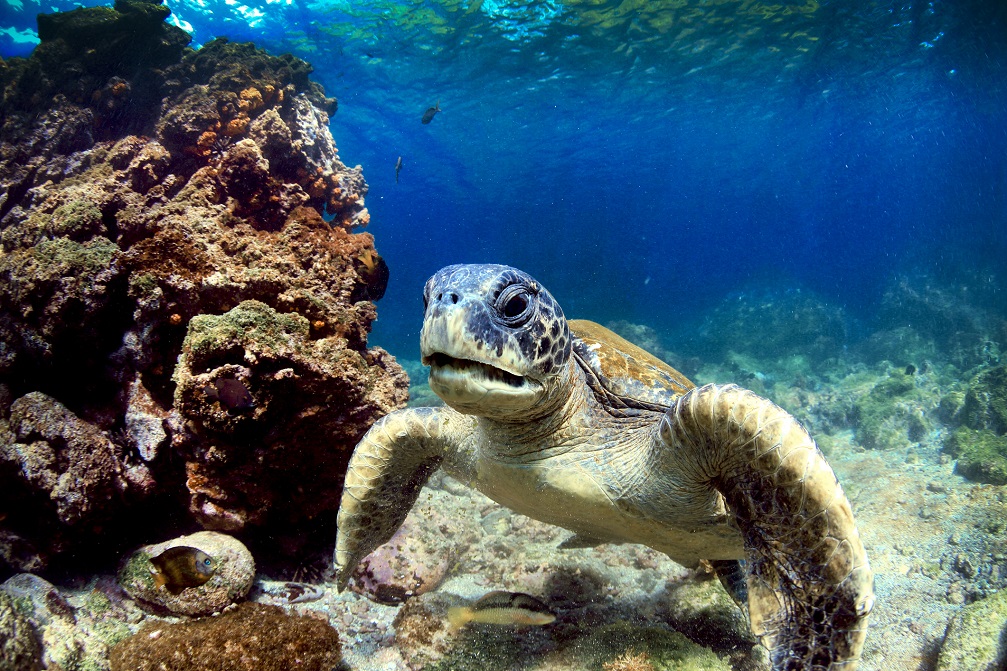
Penguins in Patagonia
The Patagonia region in Argentina has a diverse and unique kaleidoscope of animals and much of its magnificent marine fauna can be viewed from dry land. Animals like orcas, seals, and sea lions are regular features at the Punta Tombo National reserve but none is such colossal numbers as the Magellanic Penguins. Over 1,000,000 of these furry fish-eaters come to shore in the spring to lay their eggs. It is the largest colony of its kind and the park takes great care to ensure the continuation of the species.
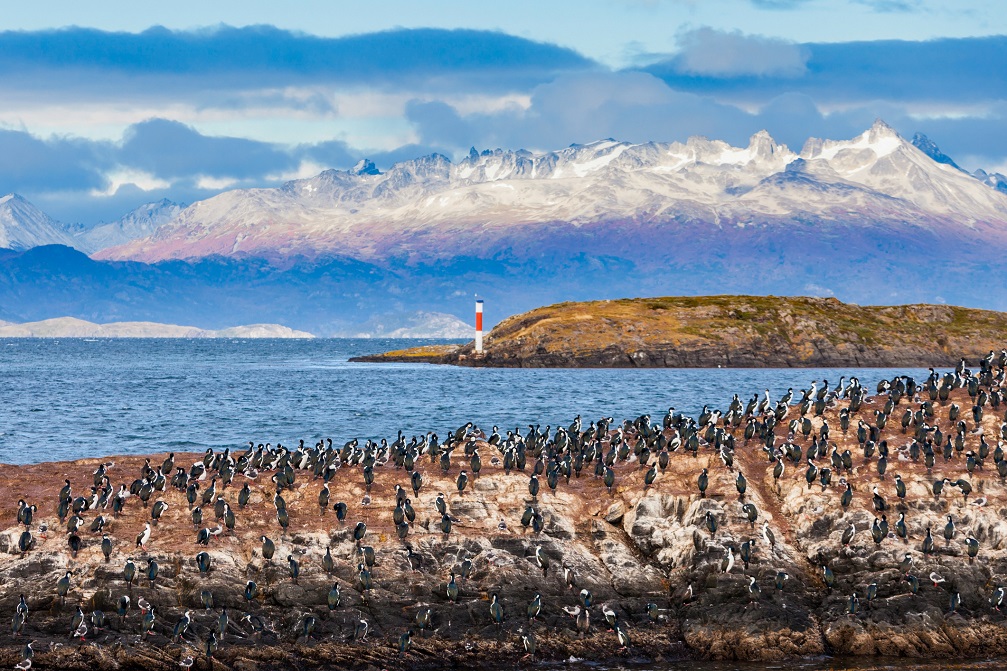
Elephants in an Orphanage
Elephant encounters are amongst some of the most controversial as it has been found that the animals are still widely abused into submission behind the scenes. One of the very few “true to their cause” sanctuaries is the elephant orphanage in Nairobi, the David Sheldrick Wildlife Trust. Here the elephants (and rhinos) who have been orphaned due to poaching or habitat loss are rehabilitated and readied to be released back into the wild. Visitors can attend feedings in the morning where baby elephants are fed with a bottle by their keepers. The rangers are eager to share information about these incredible creatures and how you can help protect them. The wildlife trust also puts a lot of effort back into educating the community about the threats facing these magnificent animals.
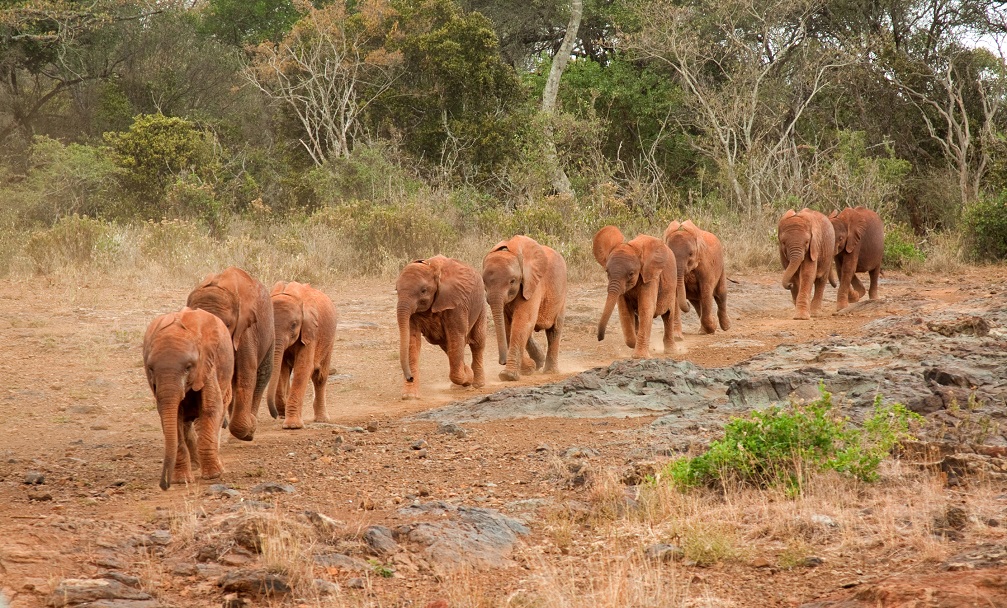
Tigers in the Forest
If you were also a Jungle Book fanatic as a kid, you would want nothing more than to meet Shere Kahn in the Jungle. Tigers have a fierce reputation as man-eaters and you would count yourself lucky if you DON’T meet one on foot in the jungles of India. Instead, opt for an ethical Safari at Ranthambore National Park in Rajasthan. The park has around 70 tigers that roam free. They are solitary animals and travel great distances, making human-animal conflict a huge problem as their territory gets invaded. The park takes great care to keep the tigers within its borders to ensure a safe and harmonious environment for them where they can live their best tiger lives!
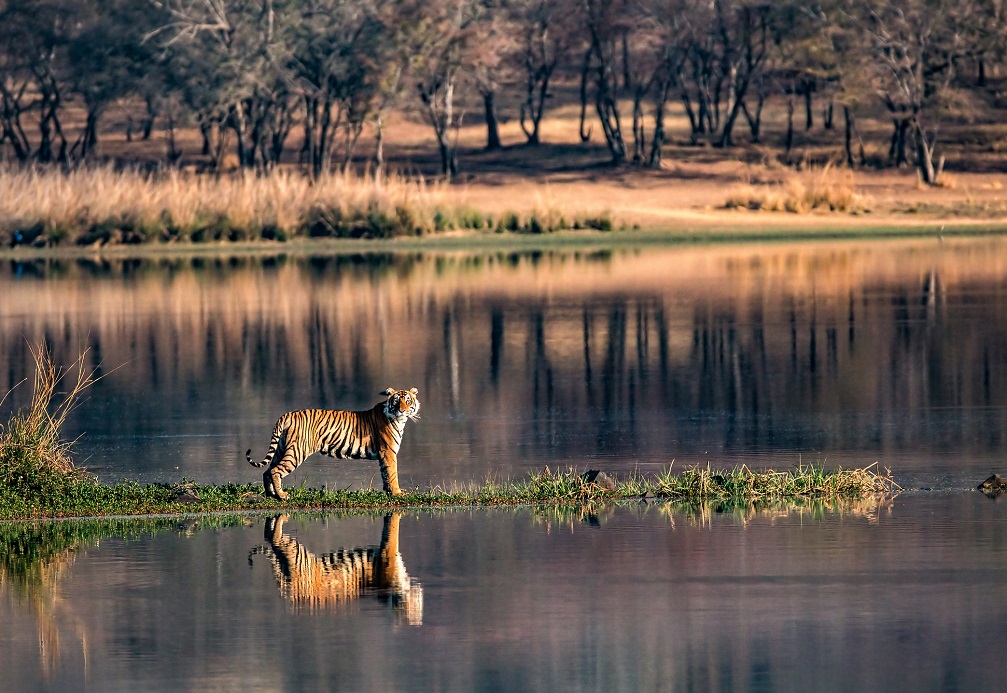

Olivia Pon
Northwood, Middlesex
Liv& Travel
0203 515 0295
info@livand.travel
Specialist Area:
Action & Adventure, Beaches, Cruise, Luxury, Yachts & Sailing, Private Aviation, Weddings and Honeymoon, Spa & Wellness, Safari, Diving and Snorkeling, All Inclusive
View ProfileRelated Articles
Related News
Related Offers
SIGN UP FOR OUR MAILING LIST
Enter your email address and receive daily or weekly updates with the latest articles, news and videos.Copyright © 2021 Experienced Travellers Ltd. Experienced Travellers Ltd is not responsible for the content of external sites. Read about our approach external linking.

















